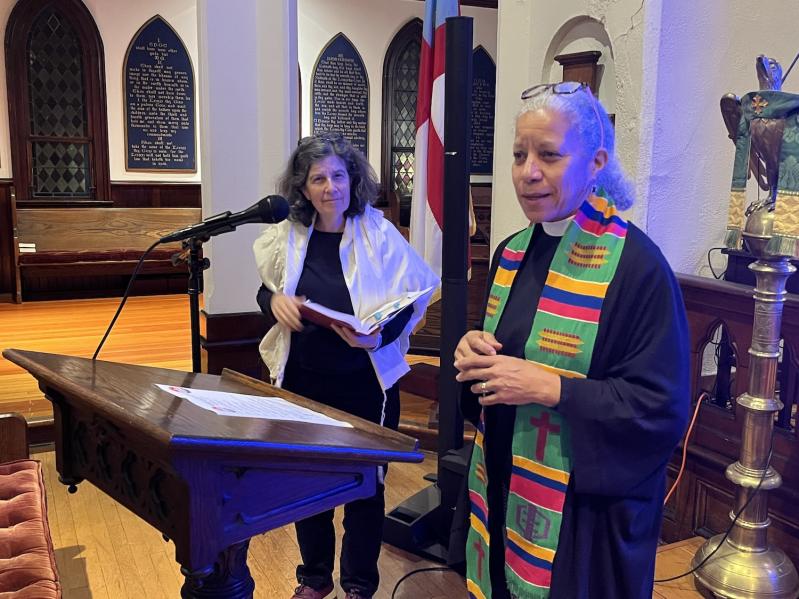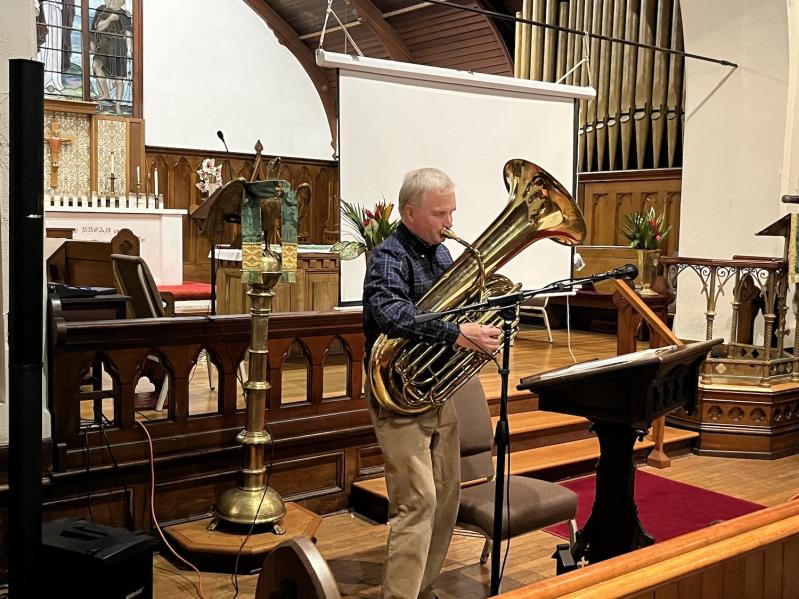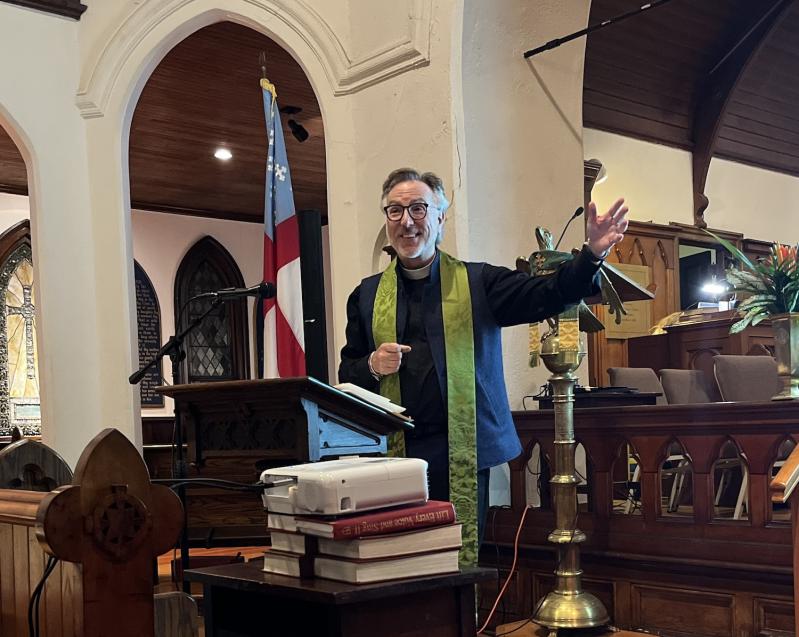On Tuesday evening in Sag Harbor, people were busy casting ballots at the firehouse on Brick Kiln Road. The fire trucks themselves were seen and heard on Main Street during a victory parade for the Pierson-Bridgehampton field hockey team, which had just won the class C county championship game. And a small group of worshipers gathered at Christ Church to pray and meditate together, navigating their Election Day anxieties in the comfort of interfaith spiritual discourse and uplifting music.
It was perhaps the best kind of blend of church and state, an otherwise constitutionally protected separation that has become increasingly blurry in many regions of the U.S. in recent years.
When the worshipers arrived at the church, the Rev. Dr. Cecily Broderick, its priest in charge, handed out a meditation schedule with the words "I prayed today" and "I voted today" emblazoned at the top. On Wednesday morning, she reflected on the experience, saying that even she and her fellow clergy members needed to hear it.
"It's moments like this where people of faith need to step in, and though there wasn't a large attendance last night, I could feel everyone was . . . trying to calm themselves, trying to not lose their footing," Ms. Broderick said. "And I think this morning, those of us who were there are reminded that the same obligations we had yesterday morning we have this morning — that running a democracy is not solely the domain of career civil servants and elected officials. It belongs to all of us."
Among the faith leaders in attendance was Rabbi Jan Uhrbach of Gesher | The Bridge Shul, who explained the long Jewish tradition of praying for the well-being of the country. What began as a prayer for the health and vitality of a monarch eventually evolved into a prayer for the people.
"What we did there is really shift the emphasis from a prayer for the government and the leadership of the country and put instead first the citizens and obligations of citizenship," Ms. Uhrbach said. "The obligations of citizens go well beyond voting and volunteering and doing all the external work of sustaining democracy. Our obligations as citizens require hard work, work on our characters and our souls and our ability to hold differences and be loving."
Ms. Uhrbach called on people to lean into their faith.
"When we know a sense of what direction the country is heading in, whether it's the direction we hoped it would be, whether our side wins or doesn't, there's going to be a lot of work to do. And it's going to be challenging to stay faithful, and that's going to be the work. . . . It's going to be our deepest faith commitments that are going to carry us through."

The Rev. Jim Erwin of St. Ann's Episcopal Church in Bridgehampton spoke at length about compassion, calling it "among the most shocking" of the teachings of Jesus in early Christian communities. It was often regarded as a "weakness," he said, a "seismic break from all that had come before."
"Jesus didn't just care for the brokenhearted, he joined them," Mr. Erwin said. "Sadly, I do feel that we have moved back into a time when compassion is being viewed as weakness."
He urged people to act in ways that make compassion "as fresh and radical as it was 2,000 years ago."
Dr. Asma Rashid, a medical doctor and a founder of the Islamic Center of the Hamptons, was also invited to speak. She told a story based on a chapter in the Quran, called "Al-Kahf" in Arabic, or "The Cave." In it, an individual follows an angel-like entity who seemingly commits "bad" acts — the sinking of a boat, the tearing down of a wall — that end up saving the lives of a family.
It's all about our own interpretations of good and bad, Dr. Rashid said. But she suggested that "the fear we have of the unknown isn't that bad. . . . Regardless of what's to come, we will be okay."
"I do believe there is a higher power" at work, she said. "Even an atrocity has a purpose."
The Rev. George Dietrich, who leads the Hamptons Lutheran Parish in Amagansett and Bridgehampton, described feeling fear in tangible ways. Love and mercy, he said, are the antidote to fear. Prayer, he said, should lead to action, and he called for the start of "peace, understanding, mutual recognition, and the care of our neighbor."
"Let it lead us to acts of love . . . push back the fear with unity, love, and peace."
In lieu of offering a traditional prayer, the Rev. Ben Shambaugh of St. Luke's Episcopal Church in East Hampton lightened up the atmosphere by playing patriotic songs on his tuba. The worshipers clapped along to "When the Saints Go Marching In," "Stars and Stripes," and "Down by the Riverside."
"It's a tense time, right?" Mr. Shambaugh said as he put down the instrument. "But we know how this ends — and I'm not talking about the election. . . . In the end, God wins and love wins, and that's really all we need to know."





